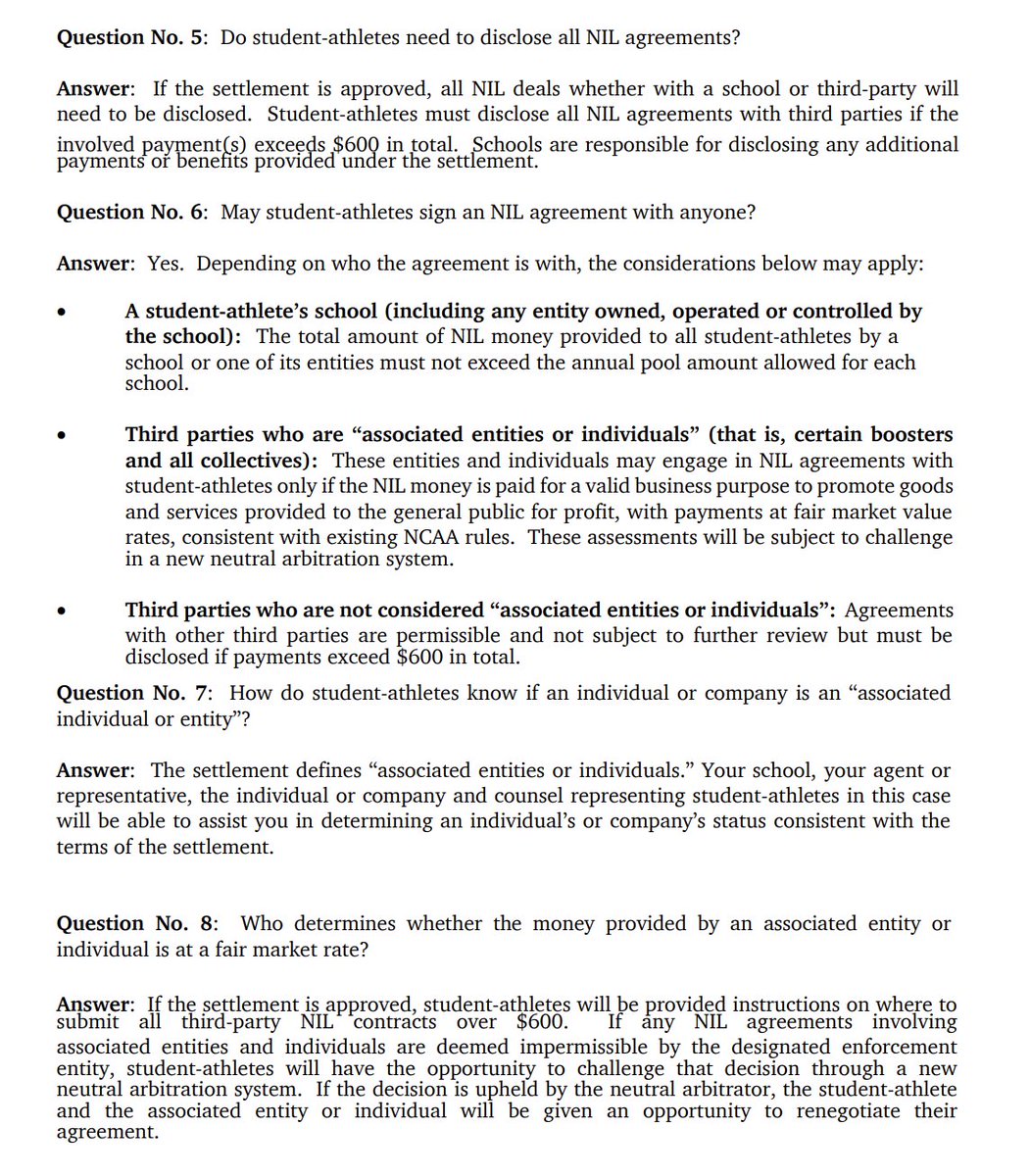I'm not sure why there continues to be confusion on this. Administrators and conferences know generally what the rules will be because the House Settlement has been preliminarily approved by the federal judge. Can there be tweaks and changes, sure. Dannen has said that NU has contingency plans if things change. However, as of now, schools are operating on a prospective basis under the rules set forth in the Settlement Agreement.
Once July 1, 2025 hits, the revenue sharing model effectively works as a salary cap. True NIL deals through endorsement, licensing and appearance agreements with "real" companies, e.g., Caitlin Clark's deal with State Farm, will still be allowed. However, NIL deals between athletes and collectives or other booster-type associated entities will be subject to approval by a clearinghouse to determine if the contract payments are for fair market value. I do not think a $500K collective deal with your offensive tackle to appear at 3 chamber of commerce functions is going to be deemed FMV after July 1.
Collectives like at Texas Tech are currently frontloading their NIL contracts with portal transfers while they can - guaranteeing them above market rates and bonuses for the next six months. The collectives ability to pay large sums after the House Settlement approval will be severely limited, so most of the money after July 1 will be coming directly from the school via revenue sharing. Tough to turn down an offer with more money up front and then the revenue share piece on the back end. It looks too good to pass up if other schools aren't playing this game during this unique window.
Will collectives still have a place? Sure. Matt Davison and Dannen have recently said as much. Matt said, however, that all may not survive. And Sipple quoted Dannen in Tunnel Talk talking about the same thing I've been saying: Because of the revenue sharing that kicks in (in July), some of the NIL third-party stuff – the collective stuff – starts to really get constricted after the anti-trust settlement is done. Bottom line, “I think there’s a mad rush to take advantage of an environment that exists today but will not exist after July 1.
After July 1, I think most collectives essentially become marketing firms - still raising money to pay athletes for appearance fees (subject to clearinghouse approval) and then operating to get athletes endorsement deals with legitimate companies, where the athlete is paid by the company, not the collective.

